Dziennikarstwo wokół azjatyckiego kina. Historia i współczesne wyzwania
Trzeci, a zarazem ostatni blok Międzynarodowego Kursu Dziennikarstwa i Krytyki Filmowej Asian Cinema Education, będący opowieścią o historii dziennikarstwa poświęconego azjatyckiemu kinu.
Aktualnie webinary można oglądać bez zapisów, w charakterze wolnego słuchacza.
Uczestnictwo w kursie jest bezpłatne. Webinary prowadzone są wyłącznie w języku angielskim - jest to język roboczy całego kursu.
Dziennikarstwo wokół azjatyckiego kina - opis kursu
Głównym celem kursu jest zarysowanie ewolucji zarówno kina Azji, jak i jego krytycznej oceny, a także przyjrzenie się filmom i osobom, które pokazały azjatyckie kino światu i prześledzenie tego, jak im się to udało. W toku kursu uczestnicy powinni ugruntować swoją wiedzę o kinie Azji i zyskać podstawowe narzędzia niezbędne do jego krytycznej oceny. Gospodarzem kursu jest Mathew Scott, pisarz, redaktor, inicjator Far East Film Festival Campus w Udine będącego programem edukacyjnym i wymianą kulturalną dla młodych krytyków filmowych z Azji i Europy.
Lekcje
- 1. Wprowadzenie - Mathew Scott
- 2. Od ciszy do dźwięku: Narodziny kina chińskojęzycznego - Sam Ho
- 3. Współczesne kino Azji: Od złotej ery kina hongkońskiego do narodzin kina komercyjnego i niezależnego w Azji Południowo-Wschodniej - Kiki Fung
- 4. Gdy Wschód spotyka Zachód: Krótka historia krytyki filmowej - Roger Garcia, Kiki Fung
- 5. Smoczyca kontratakuje: Studium reprezentacji Azjatek w kinie azjatyckim i zachodnim - Gina Marchetti
- 6. Daleki Wschód, dalekie kraje: Kilka słów na temat 'egzotyzacji' - Stephen Teo
- 7. Festiwale i nie tylko: Historia azjatyckich festiwali filmowych - Roger Garcia, Sabrina Baracetti
- 8. Kiedyś i dziś: Jak retrospektywy i archiwa chronią historię azjatyckiego kina - Bede Cheng
- 9. Rozmowy o kinie azjatyckim: trzech krytyków filmowych analizuje historie trzech azjatyckich twórców, nieznanych bohaterów, o których świat powinien wiedzieć więcej - Roger Garcia, Liz Kerr, James Marsh
- 10. Podsumowanie kursu: Ekspercki komentarz do prac uczestników - Mathew Scott, Roger Garcia
Lista filmów i lektur do poszczególnych lekcji
Od ciszy do dźwięku: Narodziny kina chińskojęzycznego
- Wrony i Wróble (reż. Zheng Junli, Chiny, 1949)
- Street Angel (reż. Yuan Muzhi, Chiny, 1937)
- Crossroads (reż. Shen Xiling, Chiny, 1937)
- The Goddess (reż. Wu Yonggang, Chiny, 1934)
- Filmy w reżyserii Sun Yu z lat 30-tych
- Diao Chan (reż. Bu Wancang, Hongkong, 1938)
- The Rich House (reż. Hung Suk-wan, Hongkong, 1942)
- The Light of Women (reż. Ko Lei-hen, Hongkong, 1937)
Współczesne kino Azji: Od złotej ery kina hongkońskiego do narodzin kina komercyjnego i niezależnego w Azji Południowo-Wschodniej
- Dotyk Zen (reż. King Hu, Hongkong, Tajwan, 1971)
- Asian Cinema 100, Międzynarodowy Festiwal Filmowy w Busan, 2015
Gdy Wschód spotyka Zachód: Krótka historia krytyki filmowej
- Mściciele z klasztoru Shaolin (reż. Liu Jialiang, Hongkong, 1977)
- Koniec lata (reż. Yasujiro Ozu, Japonia, 1961)
- Wong Kar wai Interviews, red. Silver Wai-ming Lee, Micky Lee, University Press of Mississippi/Jackson, 2017
- Ozu, Donald Richie
- Director Ozu Yasujiro, Shigehiko Hasumi
- Ozu's Angry Women, Hasumi (http://www.rouge.com.au/4/ozu_women.html)
Smoczyca kontratakuje: Studium reprezentacji Azjatek w kinie azjatyckim i zachodnim
- Lucky Grandma (reż. Sasie Sealy, 2019)
- Hong Kong Women Filmmakers (https://hkwomenfilmmakers.wordpress.com)
Daleki Wschód, dalekie kraje: Kilka słów na temat „egzotyzacji”
- Rashomon (reż. Akira Kurosawa, Japonia, 1950)
- Victor Segalen, Esej o egzotyce, Duke University Press, 2002
Kiedyś i dziś: Jak retrospektywy i archiwa chronią historię azjatyckiego kina
- Chłopiec z ulicy Guling (reż. Edward Yang, Tajwan, 1991)
- Lepsze jutro (reż. John Woo, Hongkong, 1986)
- Manila in the Claws of Light (reż. Lino Brocka, Filipiny, 1975)
- Xiao Wu (reż. Jia Zhangke, Chiny, 1997)
- Spragnieni miłości (reż. Wong Kar wai, Hongkong, 2000)
- FIAF Bulletin, International Federation of Film Archives (https://www.fiafnet.org/pages/Publications/Read-or-download-the-latest-Issue.html)
- Film Restoration: The Culture and Science of Audio Visual Heritage, Leo Enticknap, Palgrave Macmillan, 2013
Rozmowy o kinie azjatyckim: trzech krytyków filmowych analizuje historie trzech azjatyckich twórców, "nieznanych bohaterów", o których świat powinien wiedzieć więcej
- Mr Suave (reż. Joyce Bernal, Filipiny, 2003)
- Grateful Dead (reż. Eiji Uchida, Japonia, 2013)
- Princess Aurora (reż. Pang Eun-jin, Korea Płd.,2005)
Zadanie dla zarejestrowanych uczestników
- Wybierz jeden z filmów z listy polecanych w programie kursu i przez pryzmat tego, czego się nauczyłeś i wysłuchałeś, omów go w kontekście jego znaczenia dla historii kina azjatyckiego.
- Wybierz jedną z sesji, które przygotowaliśmy i napisz esej, w którym streścisz najważniejsze twoim zdaniem przytoczone argumenty i to, dlaczego takie jest twoje zdanie.
- Napisz esej, wyjaśniający czytelnikowi w jaki sposób ten kurs rozwinął twoją wiedzę o kinie Azji, a być może także to, jak je postrzegasz.
Należy wybrać jeden z powyższych tematów i napisać tekst o długości około 800 słów. Termin nadsyłania prac upływa15 grudnia.
Eksperci kursu

Mathew Scott
Dziennikarz mieszkający w Hongkongu i konsultant kreatywny kina azjatyckiego. Koordynuje coroczny program Campus na festiwalu Far East Film Festival w Udine, przeznaczony dla początkujących dziennikarzy.
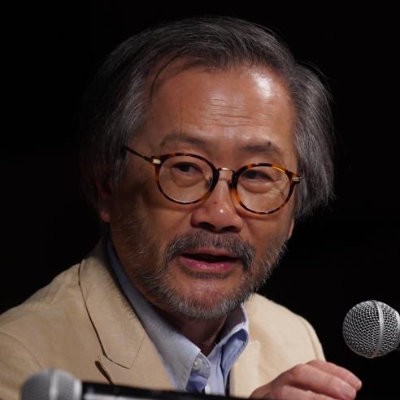
Sam Ho
Kurator, badacz i pisarz. Mieszka w Hongkongu i USA. Specjalizuje się w badaniu kina hongkońskiego, ale pisał też o innych aspektach kina i był kuratorem wielu różnorodnych programów filmowych. Promuje kino hongkońskie na arenie międzynarodowej dzięki swoim wykładom i wystąpieniom na całym świecie.
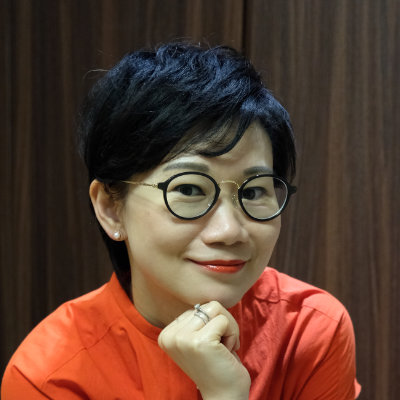
Kiki Fung
Konsultantka programowa Międzynarodowego Festiwalu Filmowego w Hongkongu i członkini Hongkońskiego Stowarzyszenia Krytyków Filmowych. Była główną programerką Międzynarodowego Festiwalu Filmowego w Brisbane i Festiwalu Filmowego Brisbane Asia Pacific oraz gościnną kuratorką Festiwalu w Brisbane i Muzeum Sztuki Nowoczesnej w Sydney.
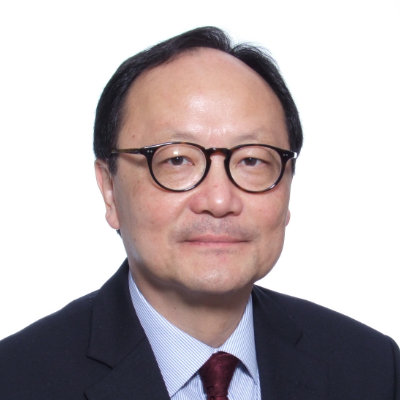
Roger Garcia
Organizator, konsultant i programer wielu festiwali w Azji, Europie i Ameryce Północnej. Jego teksty były publikowane przez Brytyjski Instytut Filmowy, Cahiers du Cinema i Film Comment. Pojawiał się też między innymi w amerykańskim Comcast Cable i hongkońskim radiu i telewizji. Produkował filmy w Azji i Hollywood.
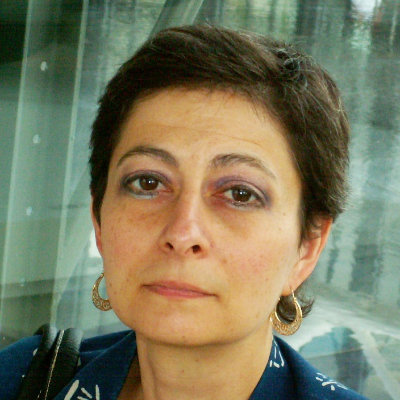
Gina Marchetti
Wykładowczyni na Uniwersytecie Hongkońskim. Jest autorką książek: „Romance and the Yellow Peril: Race, Sex and Discursive Strategies in Hollywood Fiction” (Kalifornia, 1993), „From Tian’anmen to Times Square: Transnational China and the Chinese Diaspora on Global Screens” (Temple, 2006), „The Chinese Diaspora on American Screens: Race, Sex, and Cinema” (Temple, 2012) i „Citing China: Politics, Postmodernism, and World Cinema” (Hawaje, 2018).

Stephen Teo
Autor licznych książek na temat kina Azji, w tym: „Hong Kong Cinema: The Extra Dimensions” (BFI, 1997), „Wong Kar-wai” (BFI, 2005), „Director in Action: Johnnie To and the Hong Kong Action Film” (Hong Kong University Press, 2005), „Chinese Martial Arts Cinema: The Wuxia Tradition” (Edinburgh University Press, 2017). Jego ostatnią książką jest „Chinese Martial Arts Film and the Philosophy of Action” (Routledge, 2021).
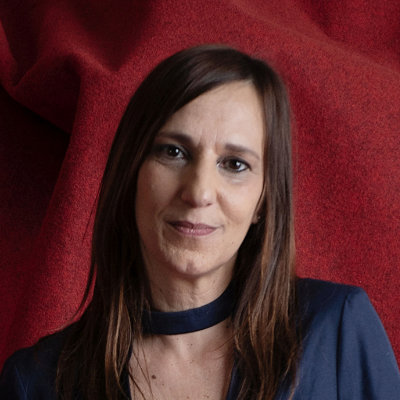
Sabrina Baracetti
Założycielka i dyrektorka Udine Far East Film Festival, przewodnicząca organizacji kulturalnej C.E.C., będącej dystrybutorem kina artystycznego, konsultantka firmy dystrybucyjnej Tucker Film, współzałożycielka i konsultantka TiesThat Blind i członkini rady dyrektorów Friuli Cinematheque. Jest członkinią licznych jury festiwalowych, a także doradczynią do spraw nominacji do Azjatyckich Nagród Filmowych.
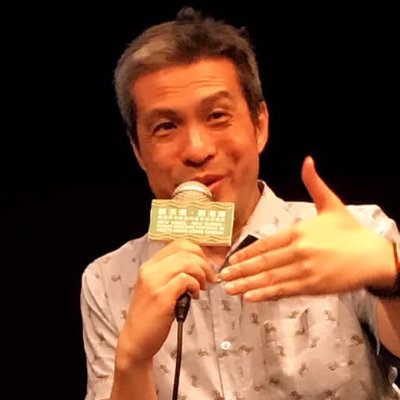
Bede Cheng
Pracował dla wielu instytucji filmowych, w tym dla Międzynarodowego Festiwalu Filmowego w Hongkongu i Hongkońskiego Archiwum Filmowego. Brał aktywny udział w przygotowaniu pierwszej edycji festiwalu Sundance w Hongkongu w 2014 roku. Obecnie jest dyrektorem wykonawczym laboratorium rekonstrukcyjnego L'Immagine Ritrovata Asia i członkiem rady nadzorczej Międzynarodowego Festiwalu Kina Dokumentalnego w Hongkongu.

James Marsh
Pracuje jako wolny strzelec w charakterze krytyka filmowego i programera festiwali. Przez ponad 20 lat mieszkał w Hongkongu. Pisze dla South China Morning Post, jest krytykiem w radiu RTHK Radio 3 i redaktorem działu Azji w ScreenAnarchy.com.

Elizabeth Kerr
Dziennikarka filmowa, mieszka w Hongkongu. Pisze dla The Hollywood Reporter, China Daily Hong Kong i Zolima Citymag. Książki, które widać w nagraniu są prawdziwe i tak, większość z nich przeczytała. Poza „Wojną i pokojem”.
Kontakt
Masz pytania? Napisz do nas!
education@piecsmakow.pl







